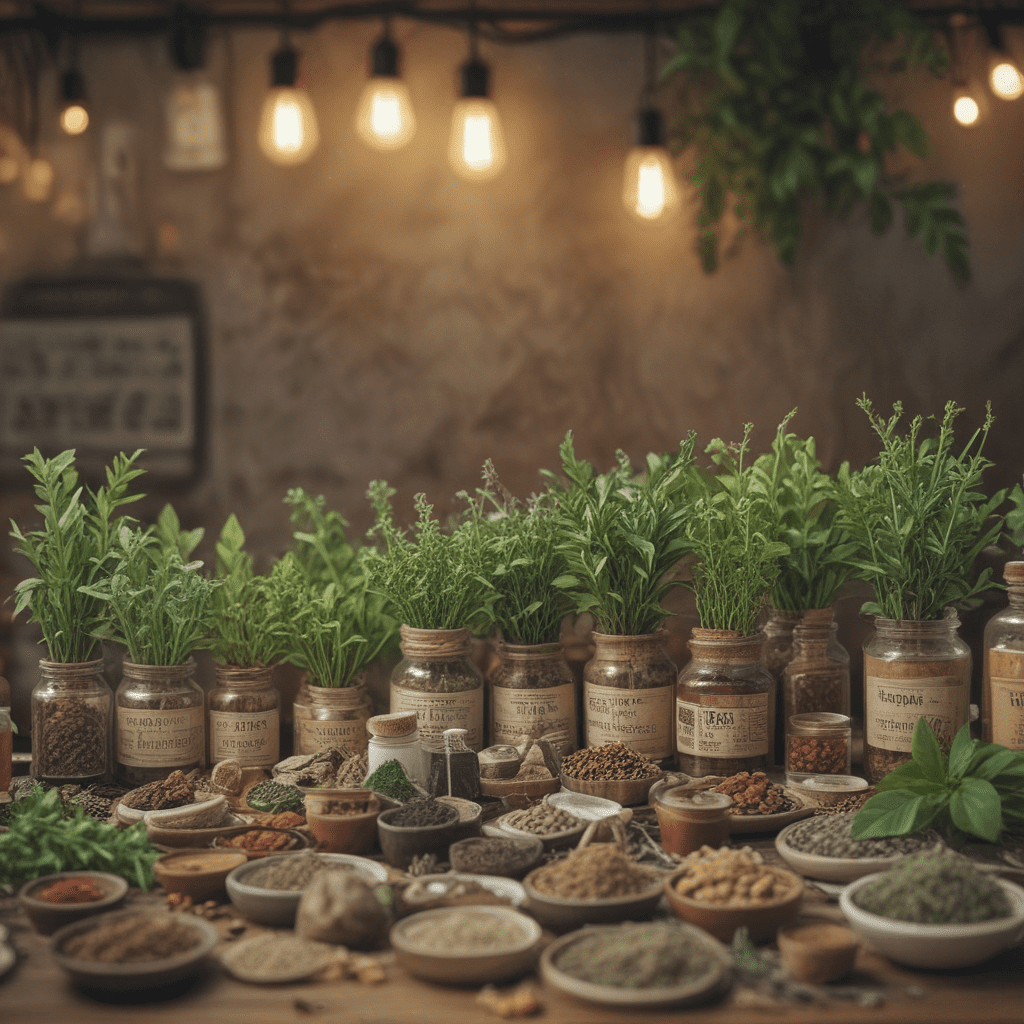
Historical Significance
Bangladesh has a rich history of traditional herbal medicine, dating back to ancient times. The country's diverse flora and abundant natural resources have contributed to the development of a vast knowledge base of medicinal plants and their therapeutic uses. Over centuries, traditional healers, known as "kabirajs," have passed down their knowledge and expertise through generations. Herbal medicine has remained an integral part of Bangladesh's healthcare system, complementing modern medicine and providing accessible and affordable healthcare options to many communities.
Classification of Herbal Medicines
Traditional herbal medicines in Bangladesh are primarily classified based on their source and preparation methods. There are three main categories:
Plant-based Medicines: These are the most common type of herbal medicines and are derived from various parts of plants, including roots, leaves, stems, flowers, and fruits. They may be used fresh, dried, or processed into different forms such as decoctions, infusions, tinctures, and powders.
Mineral-based Medicines: These medicines are derived from natural minerals and are often used for their specific therapeutic properties. Some examples include bhasma (ash), loha bhasma (iron oxide), and shankha bhasma (conch shell ash).
Animal-based Medicines: These medicines are derived from animal products, such as bones, horns, and shells. They are less common than plant-based medicines but have been used in traditional healing practices for specific purposes.
Commonly Used Medicinal Plants
Bangladesh's diverse flora provides a wide range of medicinal plants that have been used for centuries to treat various ailments. Some of the most commonly used plants include:
- Neem (Azadirachta indica): Known for its antifungal, antibacterial, and anti-inflammatory properties, neem is widely used to treat skin conditions, infections, and digestive disorders.
- Tulsi (Ocimum tenuiflorum): This sacred plant is revered for its medicinal properties and is used to treat respiratory problems, fever, and stress.
- Ginger (Zingiber officinale): Ginger is a versatile spice that has been used to alleviate nausea, vomiting, and digestive issues.
- Turmeric (Curcuma longa): Turmeric is a powerful antioxidant and anti-inflammatory spice that is used to treat pain, inflammation, and digestive problems.
- Ashwagandha (Withania somnifera): This herb is known for its adaptogenic properties, helping the body cope with stress and anxiety.
Cultural and Traditional Beliefs
Traditional herbal medicine in Bangladesh is deeply rooted in cultural and traditional beliefs. Many plants are associated with specific deities or spiritual practices, and their use is often linked to religious or cultural rituals. Herbal medicines are also an integral part of traditional childbirth practices, with specific herbs used to promote easy labor and postpartum recovery. The cultural significance of herbal medicine extends to traditional festivals and celebrations, where certain plants are used for decorative or medicinal purposes, further reinforcing their importance within the community's cultural fabric.
Government Regulations and Research
The Bangladesh government recognizes the importance and potential of traditional herbal medicine and has taken steps to regulate its use and promote research in this field. The Department of Ayurveda and Unani Medicine under the Ministry of Health and Family Welfare is responsible for regulating the practice of traditional medicine and ensuring the quality and safety of herbal products. Additionally, various research institutions and universities in Bangladesh are conducting research on medicinal plants and their therapeutic applications, contributing to a growing body of scientific evidence supporting the efficacy of traditional remedies.
Current Trends and Challenges
In recent years, there has been a growing interest and resurgence in the use of herbal medicine in Bangladesh, driven by factors such as increased awareness of natural remedies, dissatisfaction with modern healthcare costs, and the desire for holistic approaches to health and well-being. However, the herbal medicine sector also faces challenges related to standardization, quality control, and adulteration, which can impact the safety and efficacy of products. Addressing these challenges is crucial to ensuring the continued growth and acceptance of herbal medicine in the country.
Ethnobotanical Significance
The traditional use of medicinal plants in Bangladesh holds immense ethnobotanical significance. Ethnobotany, the study of the relationship between plants and humans, provides insights into the cultural, historical, and medicinal knowledge associated with herbal remedies. By documenting and preserving this knowledge, researchers and practitioners can contribute to the conservation of medicinal plants and ensure the continuity of traditional healing practices for future generations.
Future Prospects of Herbal Medicine in Bangladesh.
The future of herbal medicine in Bangladesh is promising. With continued research, innovation, and government support, traditional remedies can play an increasingly significant role in the country's healthcare system. By integrating traditional knowledge with scientific advancements, Bangladesh can harness its rich botanical resources to develop safe, effective, and affordable herbal products that contribute to the well-being of its citizens and beyond.
Frequently Asked Questions
Q: Are traditional herbal medicines regulated in Bangladesh?
A: Yes, the Department of Ayurveda and Unani Medicine regulates the practice and products of traditional herbal medicine in Bangladesh, ensuring quality and ensuring safe use.
Q: How can I identify reputable herbal medicine practitioners?
A: Look for practitioners who are certified or registered with recognized organizations, have a good reputation, and use high-quality, unadulterated herbs.
Q: Are herbal medicines safe?
A: While many herbal medicines have been used safely for centuries, it's important to consult a qualified healthcare professional before using any herbal remedies, as some may have potential side effects or interactions with medications or medical conditions.
Q: How can I incorporate herbal medicine into my modern healthcare routine?
A: Discuss the use of herbal medicine with your healthcare provider, who can help determine if it's appropriate for your specific health needs and provide guidance on how it can be integrated with your existing treatments.


